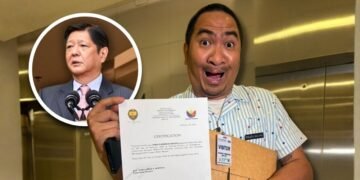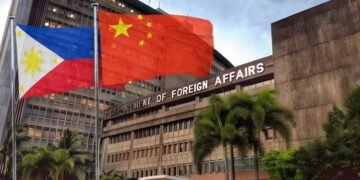President Bongbong Marcos Jr. took a bold step by ordering an investigation into PrimeWater Infrastructure Corp., a water utility company owned by the influential Villar family, following widespread complaints about poor service and exorbitant billing.
This move, announced by Palace Press Officer Claire Castro, underscores Marcos‘ commitment to addressing public grievances, even when it means confronting one of the Philippines’ most powerful families.
PrimeWater, led by Manuel Paolo Villar and part of the business empire of former Senator Manny Villar—named the richest Filipino by Forbes in 2025 with a net worth of $17.2 billion—has faced mounting criticism. The company operates over 100 joint ventures with water districts nationwide, serving millions of households.
However, residents in areas like San Jose del Monte, Bulacan, and Camarines Norte have reported murky water, frequent outages, and bills as high as P1,000 for minimal usage, far exceeding rates set by the Local Water Utilities Administration (LWUA).
The Commission on Audit (COA) has flagged PrimeWater’s operations, noting financial losses in districts like San Jose del Monte, which went from a P53.6 million net income in 2018 to a P5.3 million loss in 2020 after a 2018 joint venture.
Reports also highlight disadvantageous income-sharing agreements, with PrimeWater allegedly charging fees for collecting arrears, shortchanging local water districts. In Cavite, Pampanga, and Bacolod, similar issues of poor service and questionable financial practices have sparked protests.
Marcos‘ directive is a significant move, given the Villars’ political clout. Manny Villar’s wife, Senator Cynthia Villar, and son, Senator Mark Villar, hold key positions, while daughter Camille Villar is a congresswoman running for the Senate.
The family’s ties to Marcos’ ally, House Speaker Martin Romualdez, add complexity. Yet, Marcos‘ administration has emphasized that “inadequate service has no place” in his government, signaling a willingness to prioritize public welfare over political alliances.
Critics, including the Water for the People Network, argue that PrimeWater targets well-performing water districts for profit, not improvement, exacerbating water access issues for over 22 million Filipinos lacking safe drinking water.
In Camarines Norte, a five-day outage in December 2024 due to high river turbidity left thousands without water, with PrimeWater criticized for poor communication and a 2.06% rate hike despite service failures.
Marcos‘ probe, while promising, faces challenges. The Villars’ influence and PrimeWater’s extensive contracts suggest an uphill battle. However, his call for accountability reflects a commitment to transparency, resonating with his promise of unity and progress.
As the investigation unfolds, Filipinos await tangible reforms to ensure clean, affordable water—a basic right—regardless of the power behind the provider.












